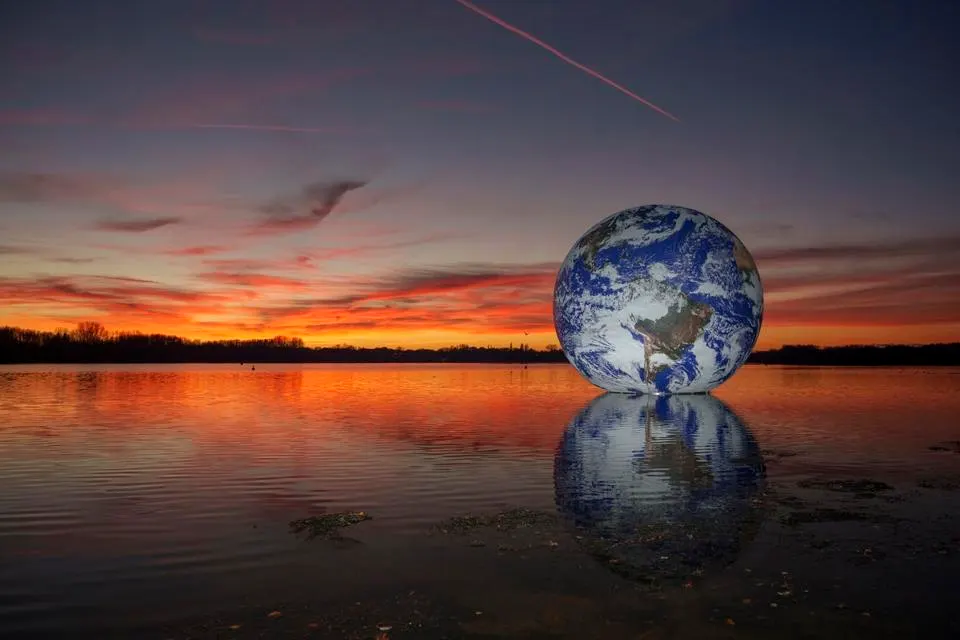I proposed the idea of Climate Bretton Woods a few months back. The reason is simple—Bretton Woods institutions created almost 80 years ago to rebuild economic systems are not able to act fast enough to effectively deal with climate change. But one of the three main institutions I proposed in the Climate Bretton Woods piece—a Global United Nations for Climate Change—could take on such a challenge.
Absolutely legitimate questions are why do we need this? Does this not already exist? If it exists, what are its limitations and reasons that we need to address?
A UN body focused on climate change does exist. It’s the United Nations Framework Convention on Climate Change. It was established in 1994 and it now has near universal membership. While progress has been made in terms of agreements and commitments through this body, we are still falling behind when it comes to addressing climate change. The IPCC has found that there is still a more than 50% chance that global temperature rise will surpass 1.5 degrees Celsius by 2040. This highlights a vital flaw in the work of UNFCCC—the ability to convert dialogue and commitments into meaningful action.
To be able to meaningfully achieve action, a new institution will need to deliver on three aspects that the existing institution can’t. The first is around faster decision making. UNFCCC processes have been slow from the outset—you need only look at the fact that the organization was established in 1994 and it wasn’t until 20 years later that we saw the Paris Agreement. This kind of timeline is not tenable when urgent change is needed. There has been slow progress across key areas of the energy transition. For example, clarity on carbon markets relating to rules of trading credits has only just been agreed upon ahead of COP28.
The UNFCCC’s slowness emanates from the fact it operates in a legal vacuum—the COPs have not been able to agree on its Rules of Procedure. This means that the COP has held its 27 sessions operating on the basis of the draft Rules of Procedure, under a general understanding that the decisions must be taken by consensus. But consensus has often been taken to mean unanimity. Countries have often used this in good faith to get their voice heard, but mostly in bad faith to block or delay decisions. Arguably, the weakest could be the most protected in a setting like this, but if we can’t get decisions in time, the weak will be the most affected by the extreme climate impacts.
The second way we can improve upon the UNFCC is by involving the private sector in the formal processes. Fewer than 20% of the world’s top 1,000 companies have set 1.5 degree Celsius science-based targets, and, based on the Net Zero Tracker, fewer than 10% also have comprehensive public transition plans. National policies such as the U.S. Inflation Reduction Act, while driving positive change, cannot solve the climate crisis alone. The private sector must play its part in the fight against climate change. Globally, the corporate sector accounts for almost 70% of greenhouse gas emissions, and a real impact on emission reductions will only be possible with a global effort to push these businesses in the right direction. This could be achieved through establishing legally binding mandates for countries, large corporations and even other sub-national actors like cities.
The third way to improve upon the existing UN climate change body is to focus on the quality, accountability and enforceability of the action mandates. We are now in the Paris Agreement regime. This treaty itself is legally binding but is based on the concept of Nationally Determined Contributions, in which countries can commit to voluntary actions. But this has meant that there aren’t sufficiently ambitious commitments on the big issues—emissions and finance. The UNFCCC process can only monitor compliance and mobilize greater voluntary ambition through the five-year Global Stocktake process. While ensuring greater buy-in to the commitments from countries, the outcome is sub-optimal.
The process clearly needs more sticks in its arsenal than the UNFCCC has, to keep the world on track. The biggest roadblock to application of sticks is the issue of sovereignty. However, we must remember that in the case of an existential issue like climate change that is largely trans-boundary in nature, the international community has a role that cannot be blocked by the invocation of sovereignty. A few countries should not be allowed to put everyone else’s lives at risk. The form of sticks and the conditions under which they are applied may vary depending on the circumstances. At a very basic level, it needs more than just reporting progress periodically. At the other extreme it could go up to using instruments like sanctions, as the UN Security Council does or as is allowed under the World Trade Organization. Both have had limited success, so an ideal formula should lie somewhere within this spectrum. It is a difficult issue to tackle, but it must surely be addressed, given the urgency.



